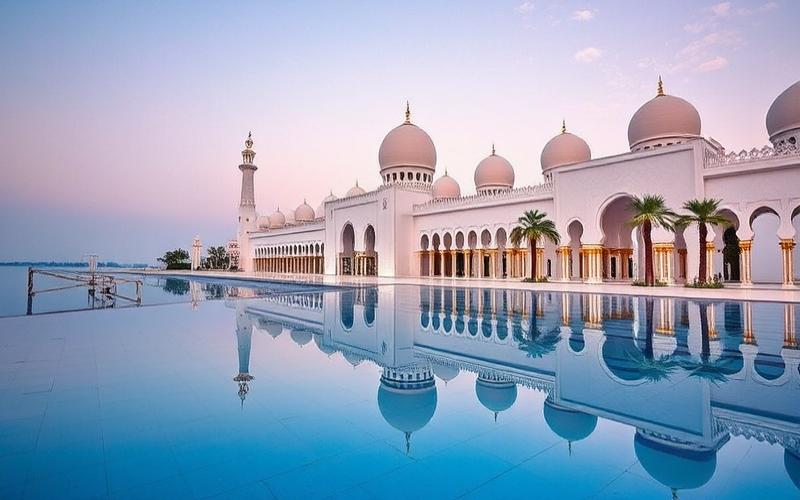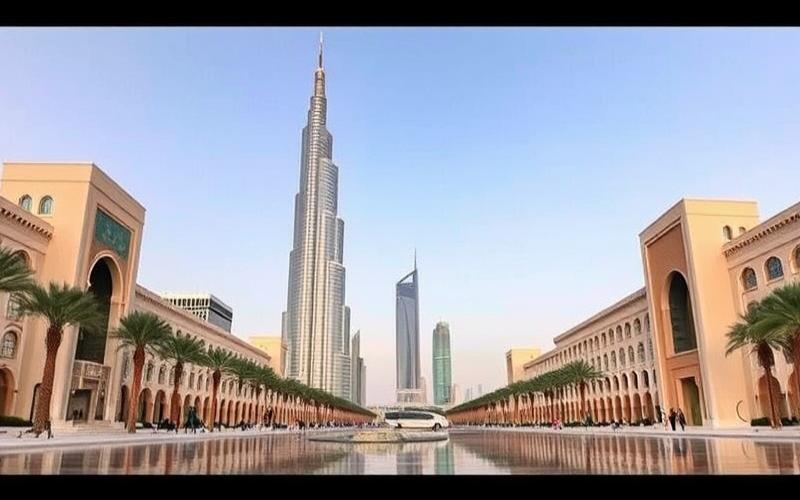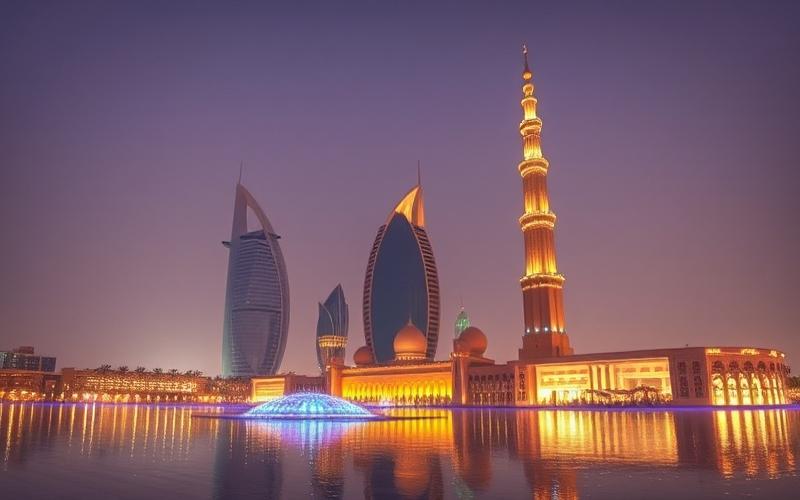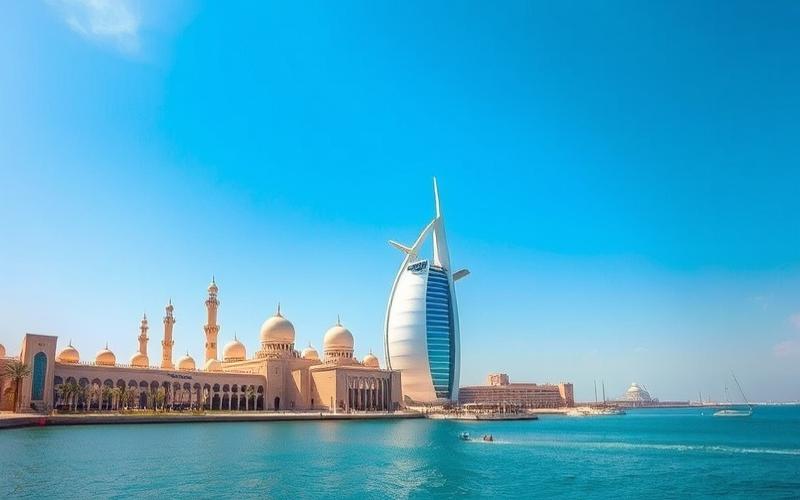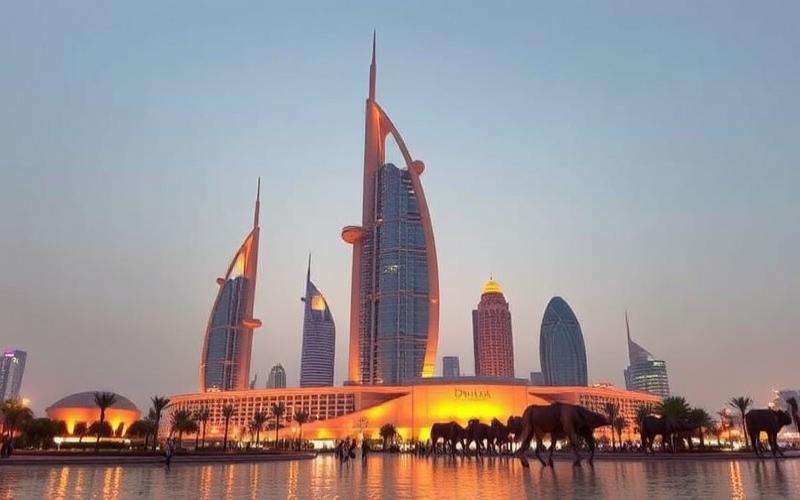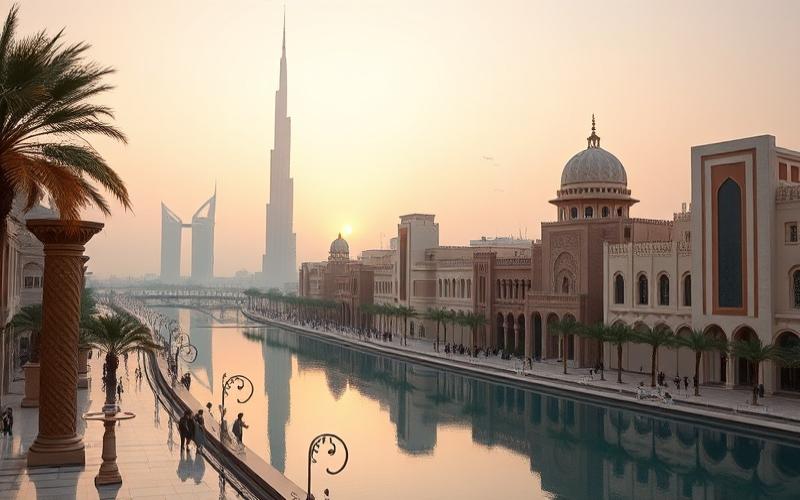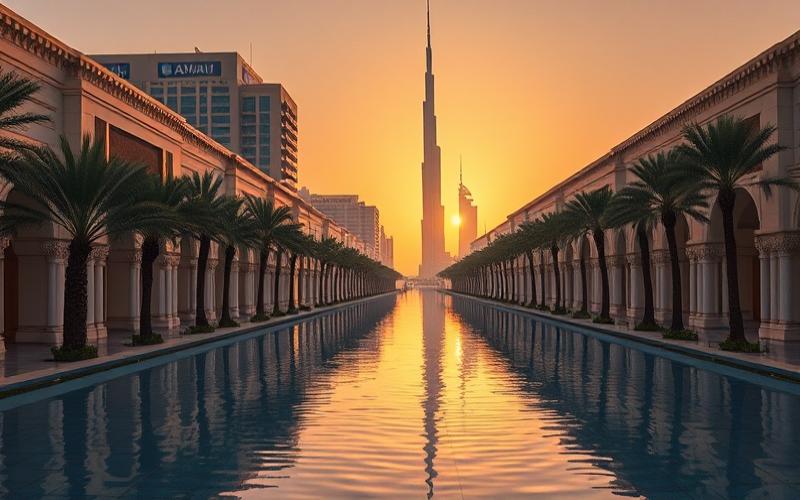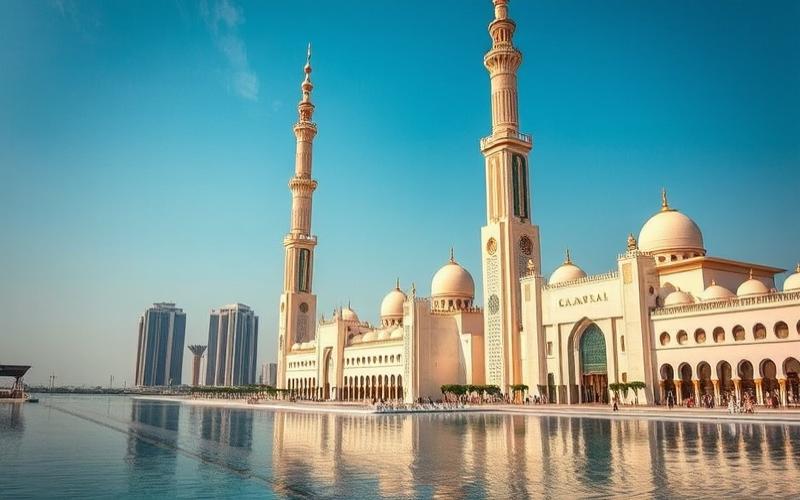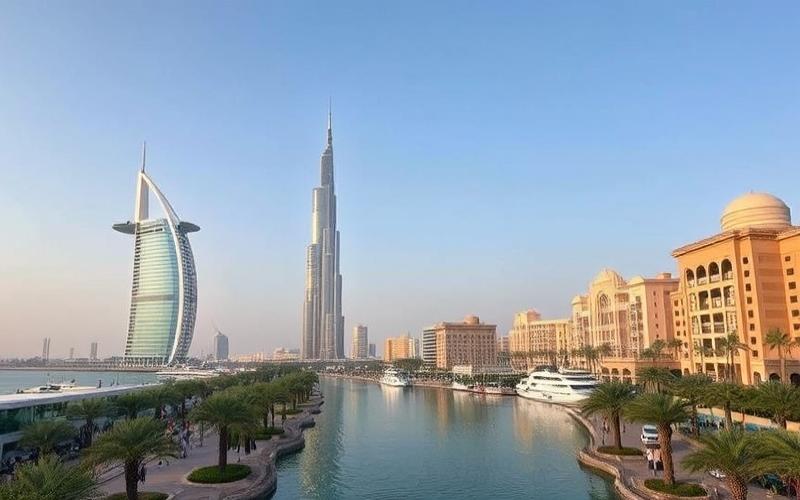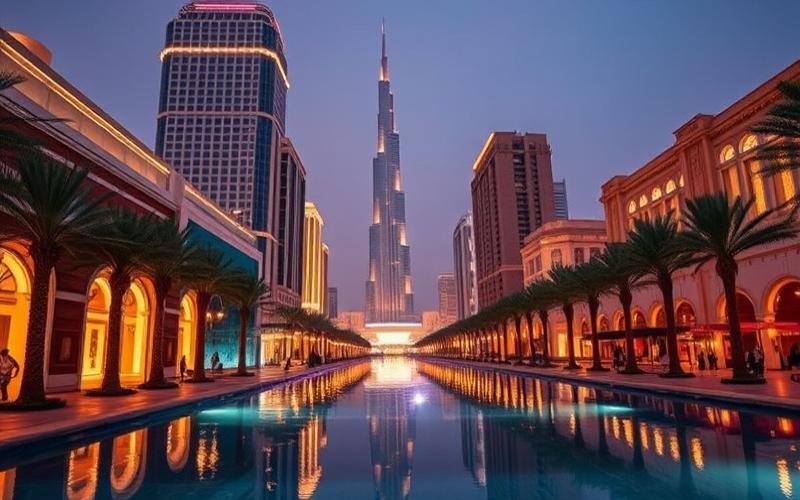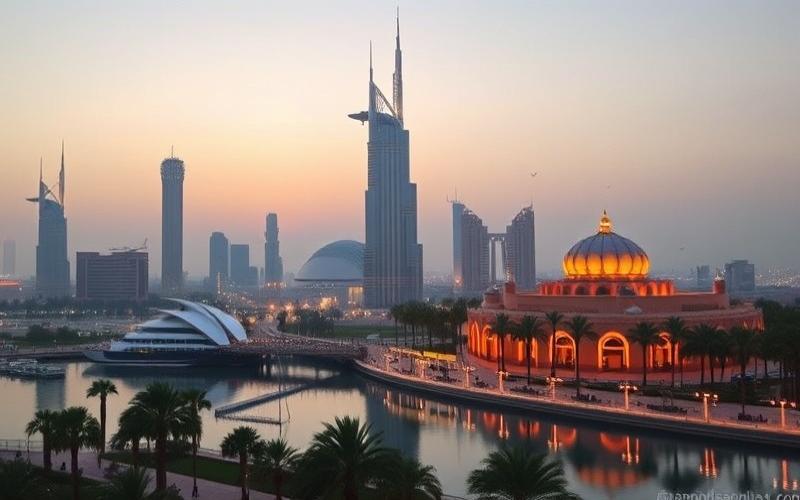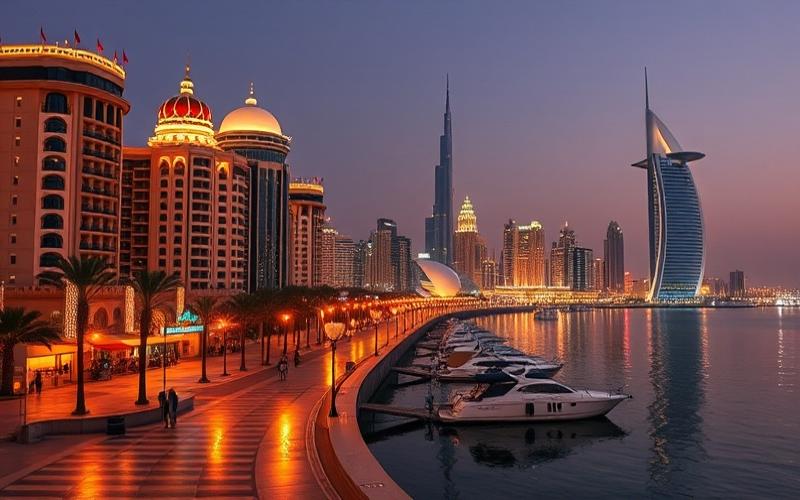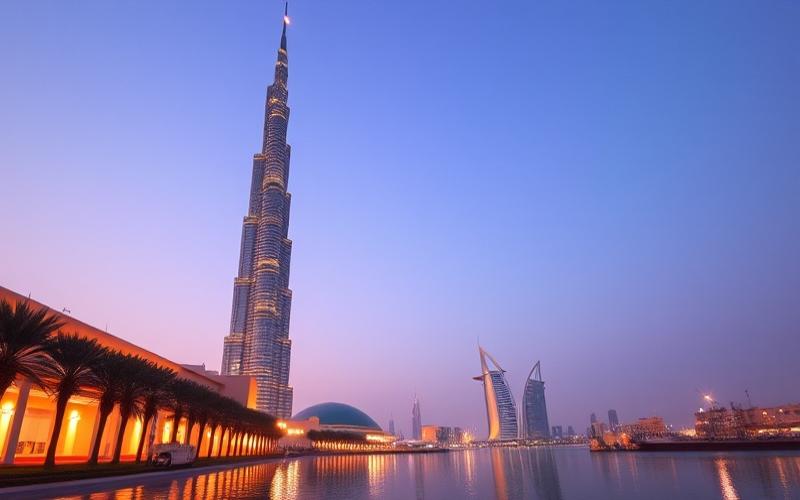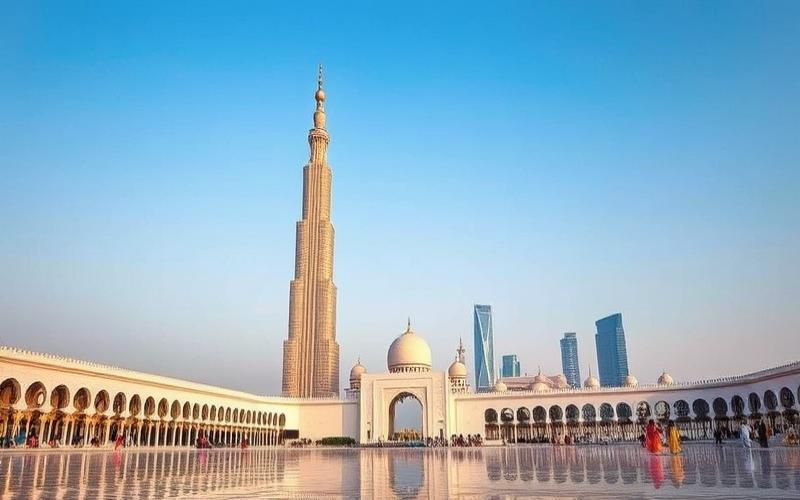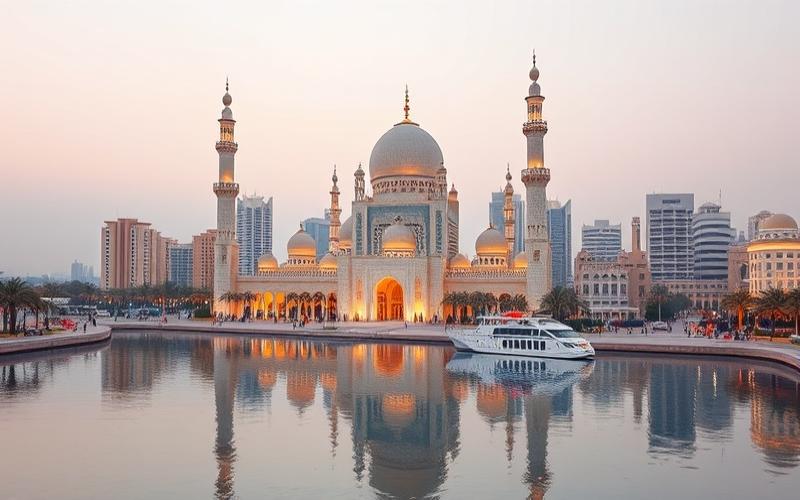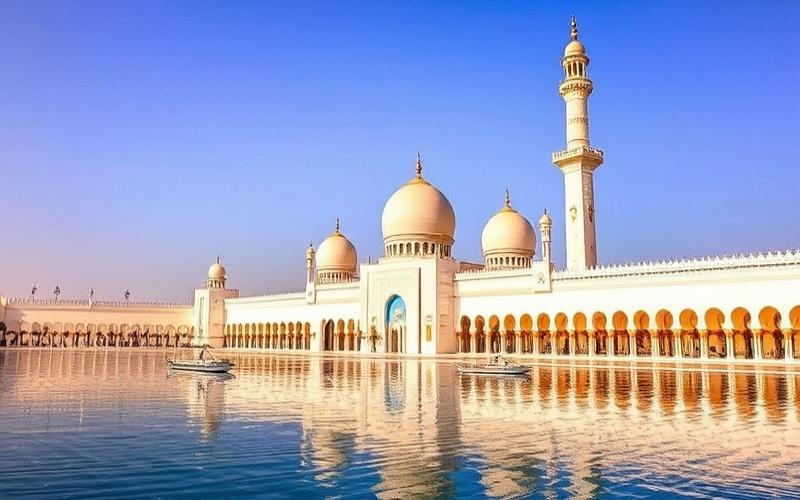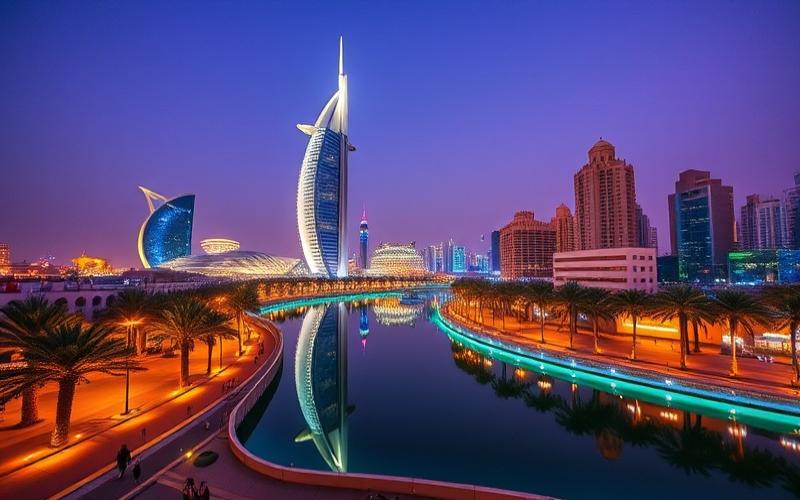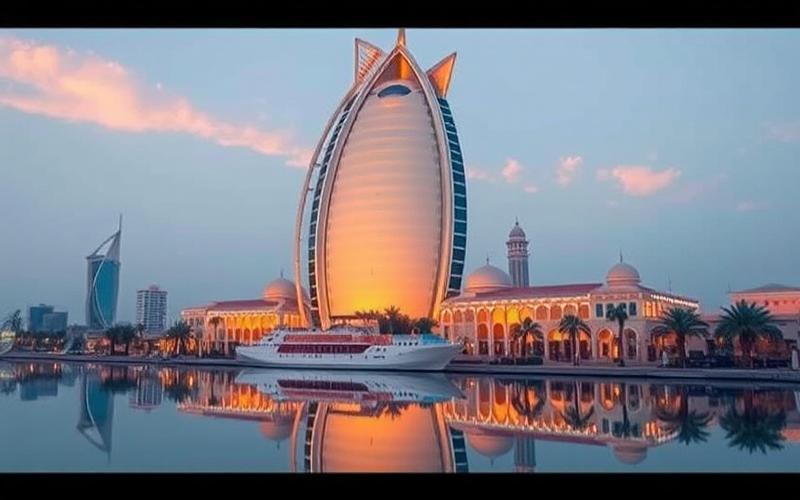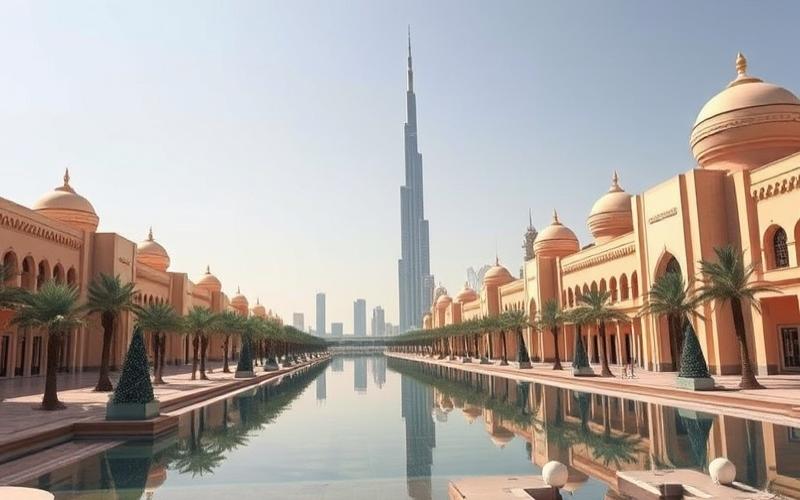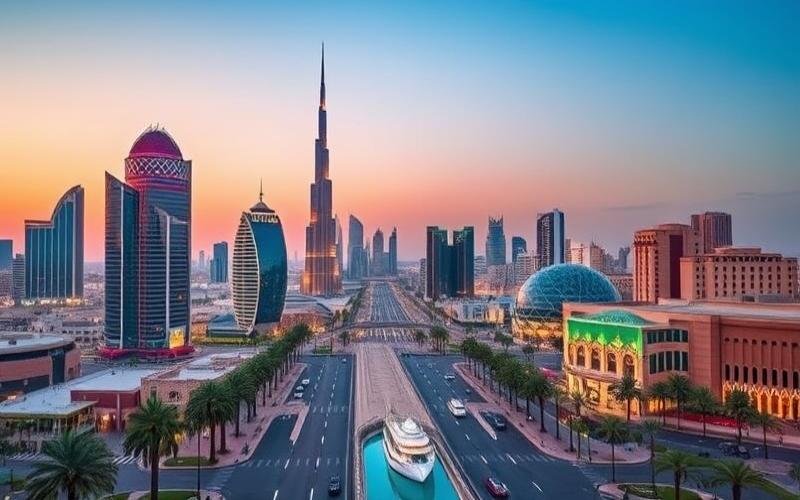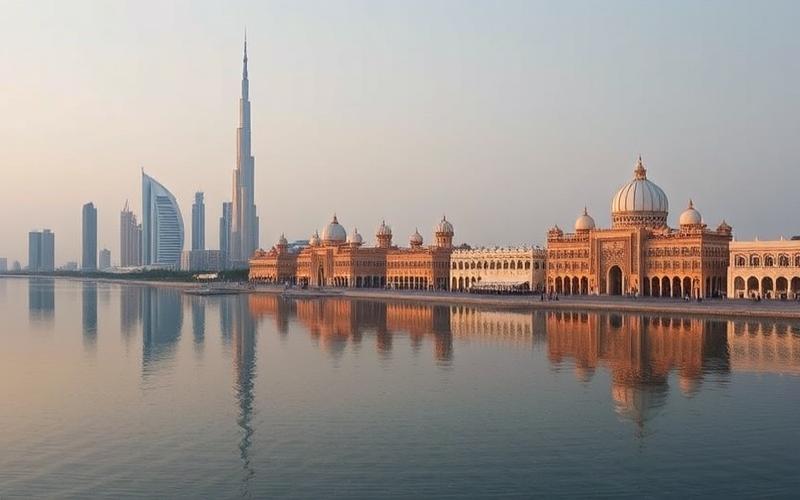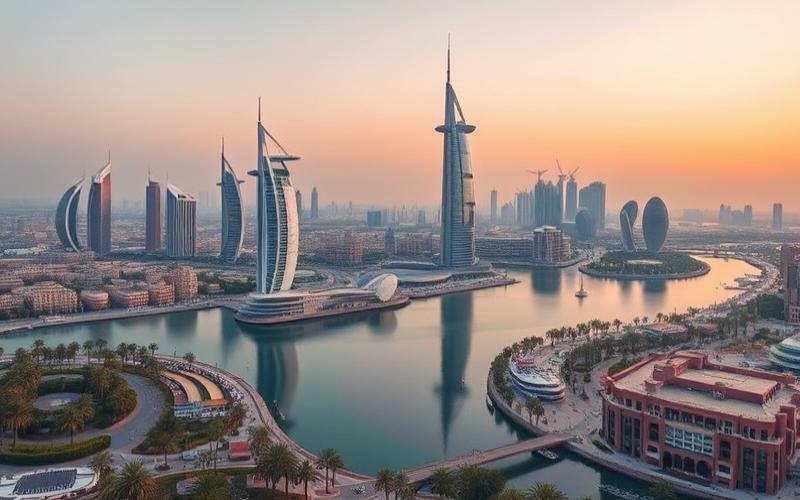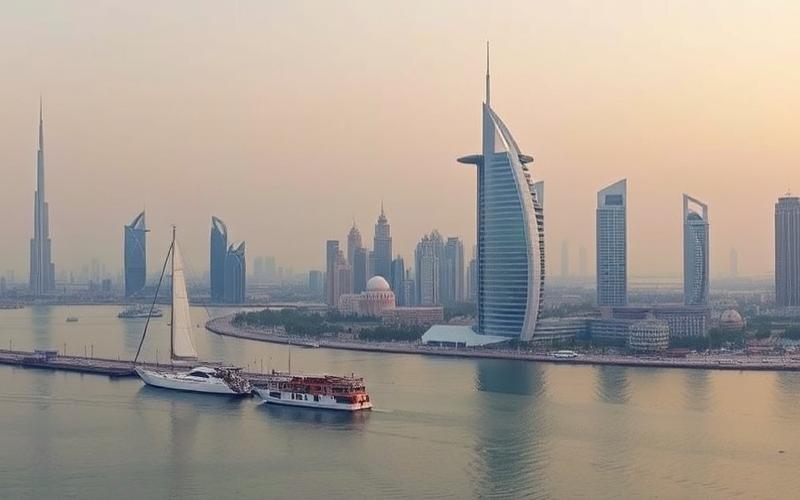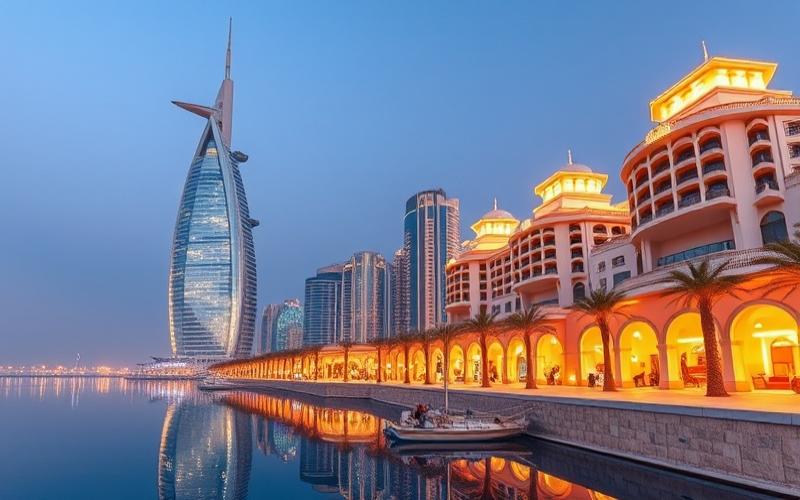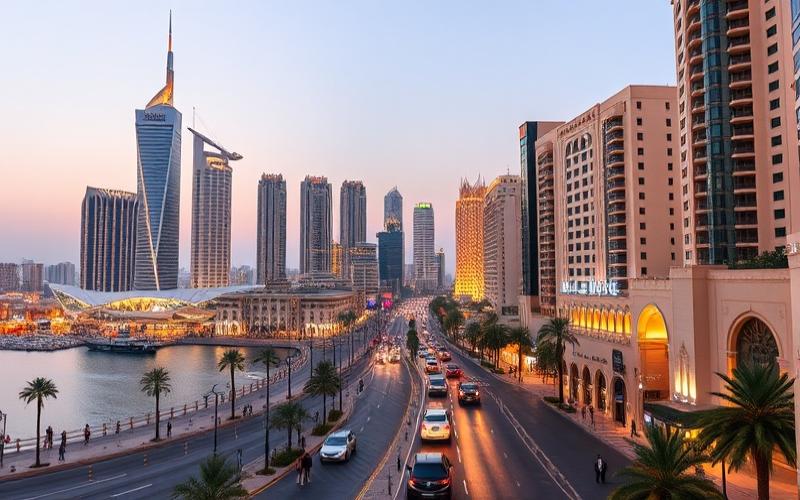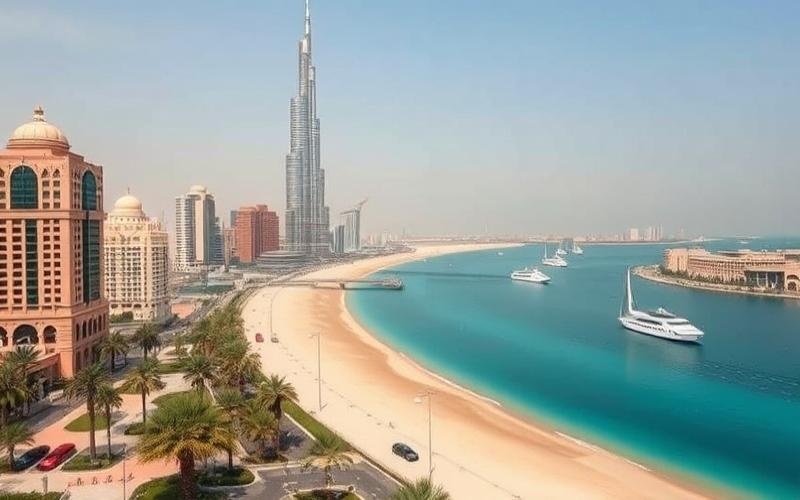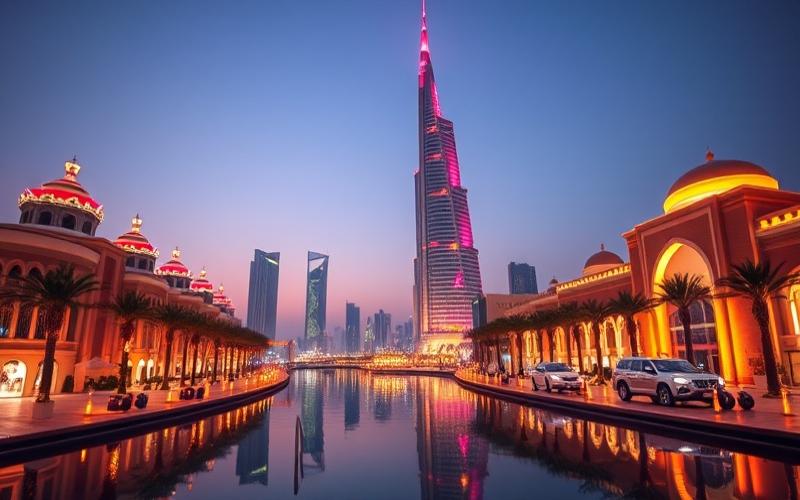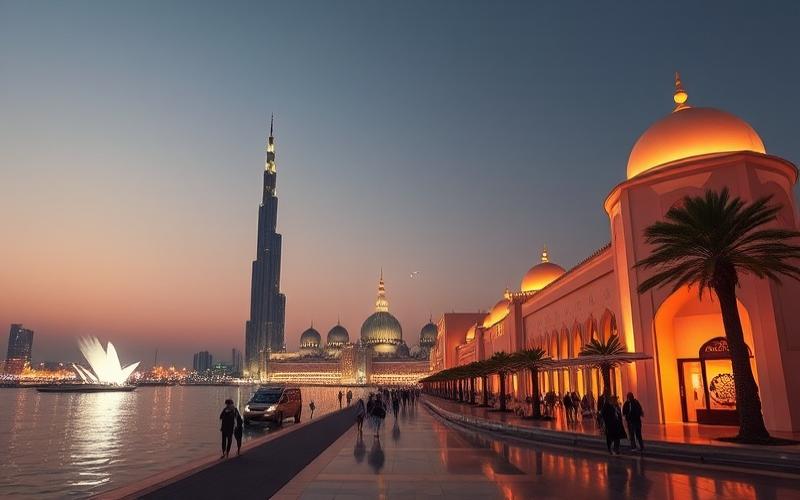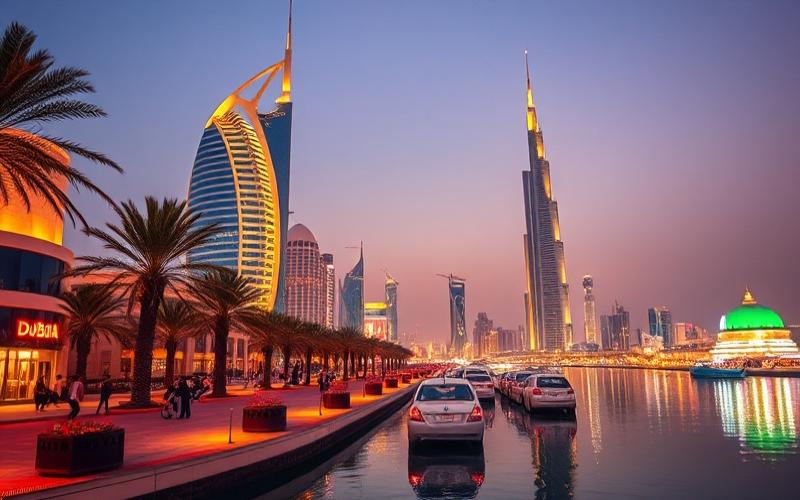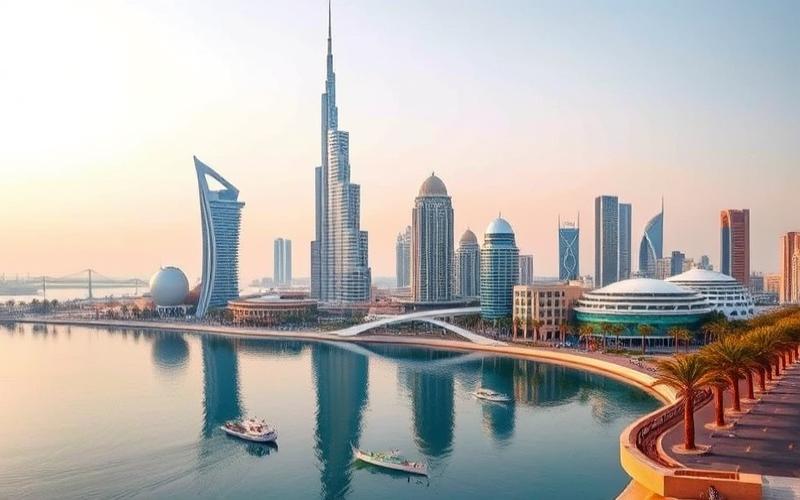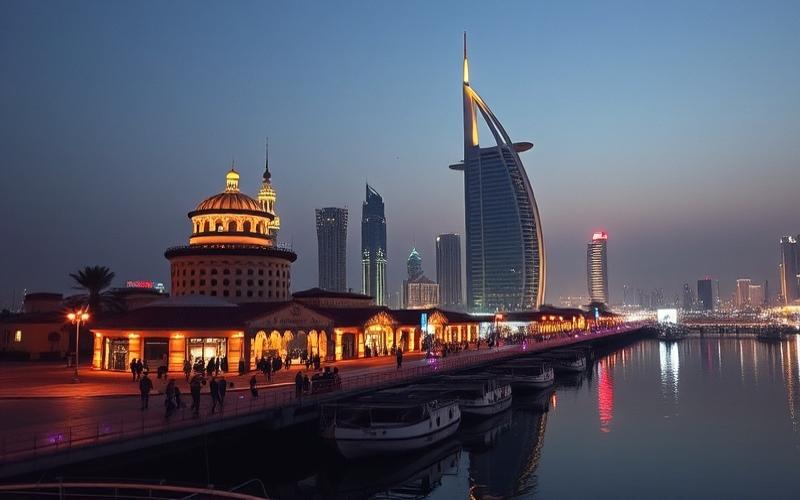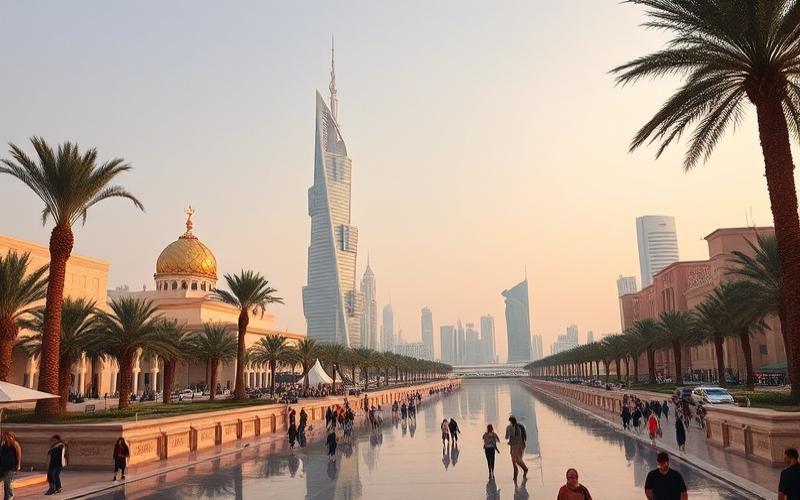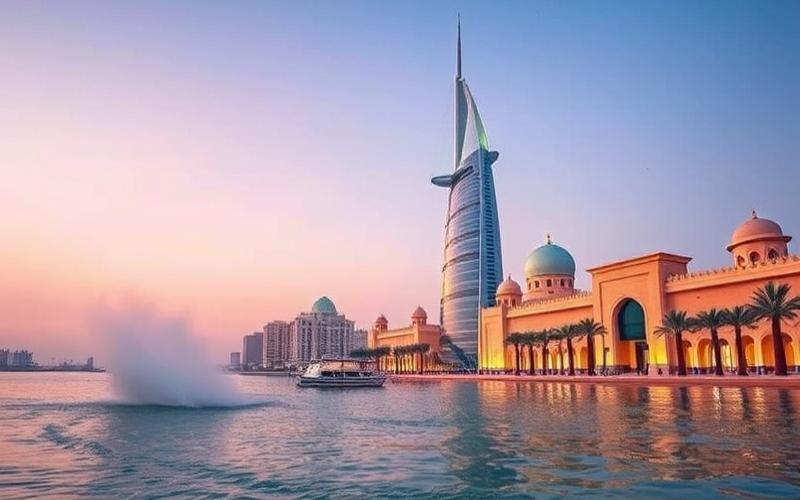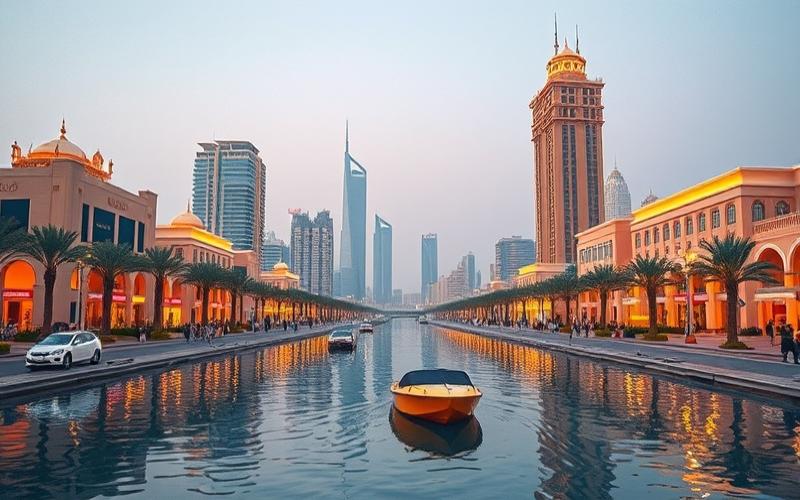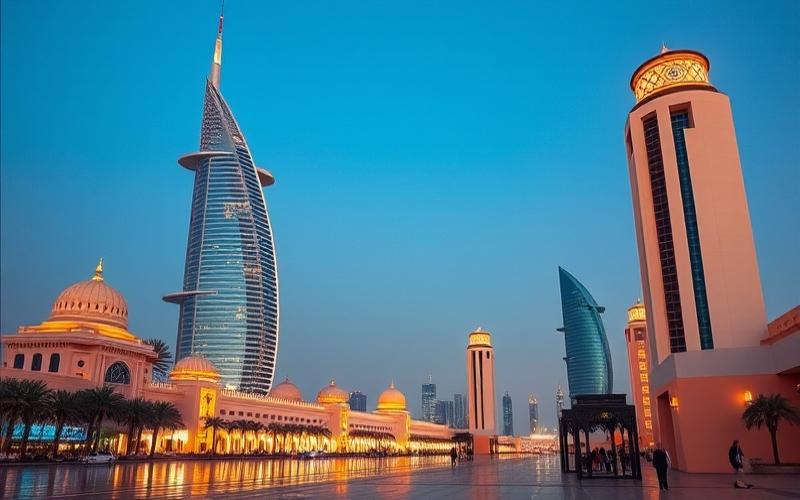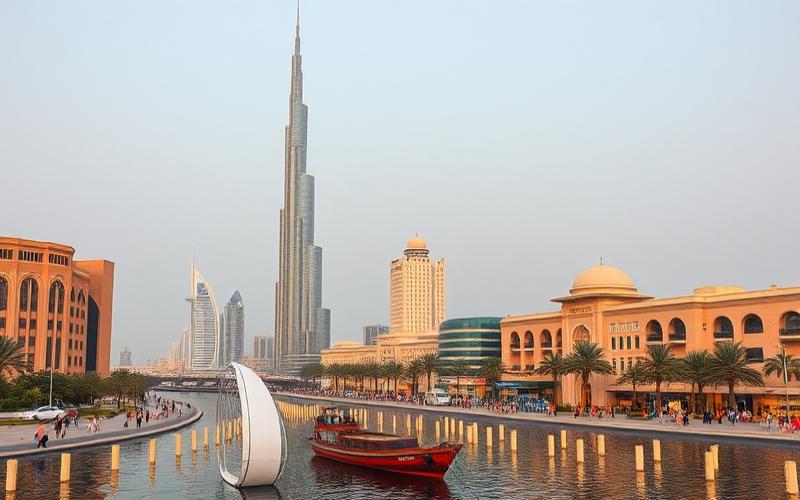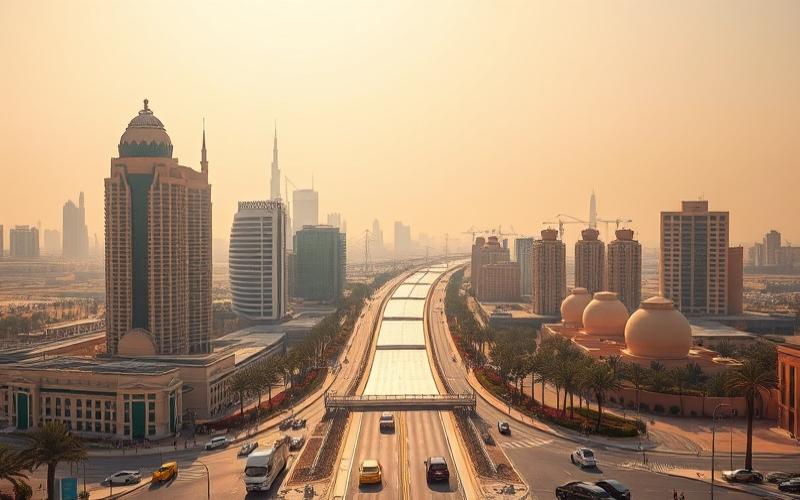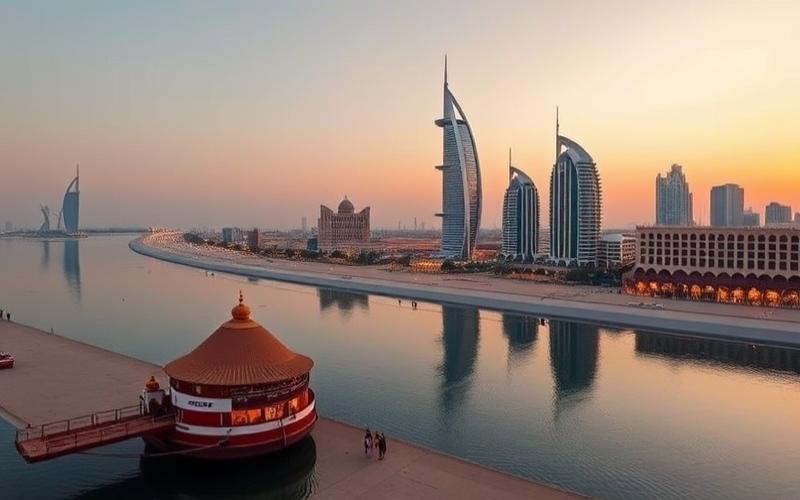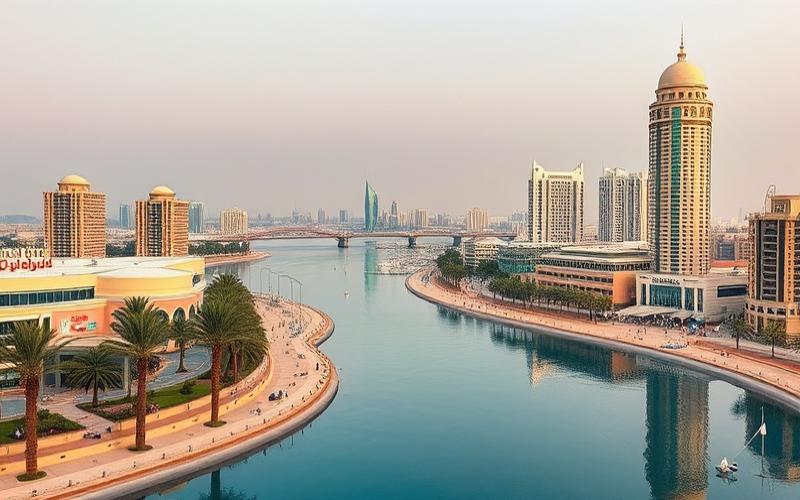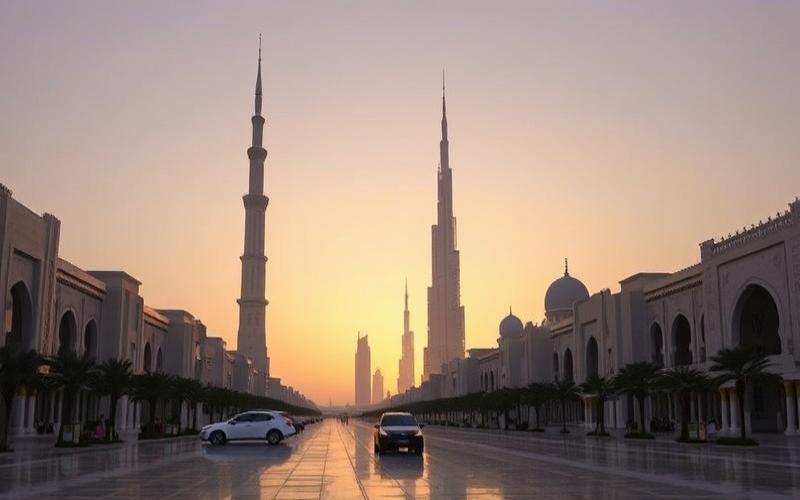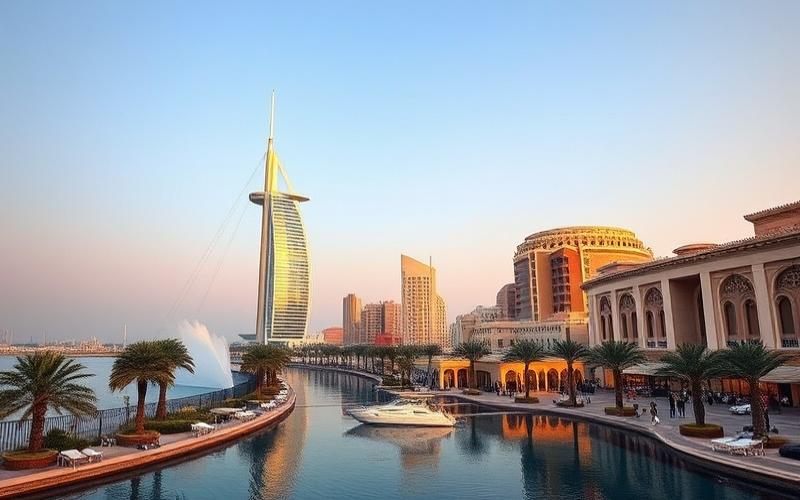
 Published on and written by Cyril Jarnias
Published on and written by Cyril Jarnias
Real Estate Investment: Dubai or Neighboring Countries?
Real estate investment is a crucial decision for any investor seeking to diversify their portfolio, and choosing between Dubai’s vibrant energy and the appeal of neighboring countries can be an exciting challenge.
Dubai, with its dynamic and constantly evolving real estate market, continues to attract buyers through its modern infrastructure and ambitious projects. However, neighboring countries, often perceived as more politically and economically stable, also present promising opportunities worth exploring.
Comparative Analysis
This article aims to analyze key differences in pricing, rental yields, and legal frameworks to help investors make an informed choice between these two fascinating options in the Persian Gulf.
Good to Know:
Real estate investments in Dubai often benefit from attractive tax advantages, while neighboring countries may offer greater long-term stability.
Real Estate Market Analysis in Dubai and Neighboring Countries
Dubai’s real estate market growth remains exceptional in 2025, driven by robust demand, massive influx of foreign investors, and an attractive economic framework. Pro-investment policies, absence of income tax, and rapid infrastructure modernization position Dubai as a global real estate investment hub.
Current Market Trends in Dubai
- Record Growth: Real estate sales volume reached AED 44.4 billion by January 2025 with continued momentum in Q1. In April alone, transactions surpassed the $17 billion mark.
- Rental Increases: Significant rent hikes are projected for 2025 across all segments (premium and affordable), particularly in Downtown Dubai, Dubai Marina, and Business Bay. Outlying neighborhoods like JVC and Al Barsha also benefit from this trend due to their value-for-money appeal.
- Growing Foreign Demand: High-income expatriates strongly drive demand for premium residential properties. The Golden Visa (long-term residence) attracts teachers, influencers, and qualified professionals seeking permanent settlement.
- Key Economic Drivers:
- Tax exemption policies
- Accelerated urban infrastructure modernization
- Golden Visas facilitating settlement of international investors and talent
- Population growth fueled by the city’s international status
Comparison with Neighboring Markets
| Country | Average Price/sq ft (USD) | Rental Yield (%) | Main Regulations |
|---|---|---|---|
| Dubai (UAE) | ~3,500–7,000 | 6–10 | Foreign ownership facilitated Golden Visa accessible No income taxes |
| Saudi Arabia | ~2,500–4,000 | 4–6 | Limited foreign access Recent reforms but sector still restricted |
| Kuwait | ~2,800–3,600 | – | Property ownership nearly impossible for non-Kuwaitis |
| Qatar | ~3,500–6,000 | 5–7 | Designated zones for foreigners Residence permits through investment |
| Oman | ~2,300–3,800 | 5 | Integrated projects accessible to foreigners |
| Bahrain | ~2,700–4,200 | 6 | Multiple open zones, Attractive investor laws |
Summary of Notable Differences:
- Price per Square Foot: Dubai shows a wide range depending on neighborhoods but remains competitive compared to Qatar or Bahrain; Saudi Arabia remains more affordable but offers less access to international investors.
- Rental Yield: Higher in Dubai due to strong international rental demand; Kuwait remains less attractive for this criterion.
- Real Estate Regulations:
- Dubai greatly facilitates foreign purchases compared to Kuwait or Oman where choices are limited.
- Qatar is expanding special zones post-World Cup but maintains some administrative barriers.
Impact of Expo 2020 on Dubai’s Market
Expo 2020 had a lasting catalytic effect:
- Significant increase in international tourism translating to temporary then sustained explosion in high-end seasonal rentals
- Massive improvement in urban infrastructure enhancing residential appeal
- Increased perception of economic stability among global investors
These effects continue, maintaining post-expo growth momentum across all key segments.
Strategic Tips for Potential Buyers/Investors:
- Prioritize two-bedroom+ family apartments in sought-after central neighborhoods where supply is decreasing against growing demand
- Target developing peripheral neighborhoods benefiting from guaranteed future appreciation through major public projects
- Fully leverage the Golden Visa offering residential flexibility while optimizing personal taxation
- Diversify portfolio regionally if high risk tolerance: combine secure yields in Dubai/Doha with speculative potential in Riyadh/Bahrain
⏹️ Winning strategies therefore rely on:
Accurate identification of promising segments (family/premium),
anticipation of emerging areas directly benefiting from major urban projects,
and smart exploitation of the favorable regulatory framework unique to the Emirates.
Good to Know:
Dubai’s real estate market stands out with strong growth rates in recent years, driven by significant foreign buyer demand, particularly since Expo 2020 which greatly boosted the local economy. Compared to neighboring countries like Saudi Arabia or Qatar, Dubai offers higher prices per square foot but compensates with foreign investment-friendly regulations. However, rental yields are often more attractive due to sustained demand. Kuwait and Oman show relatively stable prices with an emerging yet promising market, while Bahrain attracts with economic stability and interesting tax incentives. Potential investors can leverage strategies focused on attractive sectors, such as luxury residences or commercial properties, while being mindful of regulatory specifics that vary significantly from country to country.
Advantages and Disadvantages of Investing in Dubai Compared to Other Countries
Advantages of Investing in Dubai
- No Income Tax: In Dubai, investors benefit from extremely advantageous taxation. There is no tax on rental income or capital gains from real estate, allowing profit maximization. Property owners pay no annual property taxes, except for a one-time transfer fee equivalent to 4% of the purchase price during the transaction.
- Rapid Infrastructure Development: The city heavily invests in structural projects—international airports, automated metro, futuristic residential neighborhoods, and high-end facilities—that support continuous real estate asset appreciation.
- Political Stability and Security: The United Arab Emirates ranks among the world’s safest and most politically stable countries according to the 2022 Global Peace Index. This reassuring climate attracts both expatriates and institutional investors.
Disadvantages
- High Cost of Living: Dubai ranks among cities where housing, services, and international school costs are significant. This may reduce purchasing power or compress net yields for certain investor profiles.
- Economic Dependence on Oil: Although diversified in recent years (tourism, finance), the local economy remains partially dependent on the global oil sector; any major volatility in this area can have indirect impacts.
| Advantages/Disadvantages | Dubai | Saudi Arabia | Qatar | Oman |
|---|---|---|---|---|
| Income Tax | None | None | None | None |
| Real Estate Taxation | No annual tax; 4% fees | Property tax recently introduced | Limited duties | Limited duties |
| Oil Dependence | Medium | Very high | High | High |
| Infrastructure Development | Very rapid | Accelerating (Vision 2030) | Rapid | Slower |
| Political Stability/Security | High | High but rapid reforms & ongoing social changes | High | High |
| High Cost of Living | Very high | High (Riyadh) | High (Doha) | More moderate |
Recent Real Estate Market Levels & Rental Yields:
- In 2022, Dubai reached a record with nearly $81.7 billion USD in annual real estate transactions.
- Between 2012 and end of 2022, average property values increased by approximately +59%.
- Gross rental yields generally range between 6% and 9% depending on the neighborhood—higher than those observed in many major global cities.
Concrete Examples of Iconic Projects:
Non-exhaustive list:
- Burj Khalifa: Iconic residential tower offering consistent demand for high-end rentals;
- Palm Jumeirah: Waterfront villas highly sought after by international clientele;
- Downtown Dubai & Business Bay: Neighborhoods popular with both expatriate professionals and those seeking secondary residences or modern urban pieds-à-terre;
For Regional Comparison:
In Saudi Arabia (particularly Riyadh), several megaprojects are underway via Vision 2030 but remain less advanced operationally than in Dubai; in Qatar (Doha), The Pearl rivals Palm Jumeirah but offers less diversity than Dubai; Oman favors more gradual growth focused on sustainable tourism rather than massive speculative real estate.
Investing in Dubai thus combines near-total absence of direct taxation, secure/stable environment, and high potential through modern infrastructure—counterbalanced however by significant local costs for long-term residence or comfortable living. Comparatively, regional neighbors often follow similar attractive tax paths without yet matching its real estate dynamism or equally advanced sectoral diversification.
Good to Know:
Investing in Dubai offers the advantage of no income tax and rapidly expanding infrastructure, coupled with attractive political stability, supported by sustained real estate appeal with rental yields reaching 6-8% depending on neighborhoods. However, the cost of living is high and the economy remains dependent on oil, which may deter some investors. Comparatively, investing in Saudi Arabia and Qatar also offers similar tax absence, but these countries are less developed in terms of infrastructure and housing supply, although Qatar has projects like The Pearl. Oman still maintains more restrictive laws for foreign investors. For illustration, iconic real estate projects like The Palm Jumeirah in Dubai continue to attract international investors, contrasting with more moderate approaches in neighboring countries.
Comparison of Real Estate Taxation Between Dubai and Its Neighbors
| Country | Capital Gains Tax | Annual Property Tax | Real Estate VAT | Main Incentives/Exemptions |
|---|---|---|---|---|
| Dubai (UAE) | None | None | 5% on certain new properties or specific transactions, otherwise exempt for older residential real estate | Complete property tax exemption, no income or capital gains taxes, targeted exemptions for funds and REITs |
| Saudi Arabia | No classic tax, but zakat (2.5%) may apply to companies; VAT introduction at 15% since July 2020 | No (no recurrent property tax), but specific annual “white land tax” exists in Riyadh, Dammam and Jeddah (2.5% value of undeveloped land) | 15% on real estate sales except exemptions (possible exemptions for primary residence or social operations) | Conditional exemptions for social housing/strategic investments; incentives via free zones |
| Qatar | No direct tax | No | VAT not yet officially introduced (expected soon), registration fees between 0.25–1% depending on transaction | Free zones with temporary tax exemptions; near-total absence of direct real estate taxation |
| Bahrain | No direct tax | No | VAT at 10%, generally not applicable to residential real estate sales/purchases | Reductions/exemptions in targeted sectors; no recurrent taxes after purchase |
Main Competitive Advantages for Investors in Dubai:
- Complete absence of annual property taxes or holding costs.
- No direct taxes on capital gains from resale.
- Limited and controlled VAT introduction: only certain transaction types are affected.
- Favorable specific regimes for qualified real estate funds and REITs with partial or total exemption possibilities if certain conditions are met.
- Simplified administrative procedures especially for foreign investors.
Concrete Numerical Examples:
In Dubai, an apartment purchased as a primary residence incurs no annual taxation nor taxation upon resale by a foreign individual—only the initial registration fee is due (~4% of property price).
In Saudi Arabia, a developer holding vacant land in a major city could pay an annual “white land tax” equivalent to 2.5% of the estimated land value as long as it remains unused.
Impact of Local Tax Policies:
The ultra-attractive regimes practiced by Dubai ensure strong international appeal:
- Massive foreign investment flows are supported by the near-total absence of recurrent tax burdens.
- Tax stability encourages massive development of high-end residential and commercial projects.
For comparison:
Saudi Arabia seeks to limit land speculation through its “white land tax,” which may deter some purely wealth preservation investor profiles.
Qatar maintains a very liberal but less structured policy toward major international investors compared to Dubai.
Bahrain applies little or even less direct taxation than its neighbors.
In summary, investing in Dubai real estate remains among the most tax-advantageous options in the Middle East thanks to near-zero permanent taxation—a decisive element that partly explains its local and international real estate dynamism.
Good to Know:
Dubai offers a very attractive tax landscape for real estate, as there is no capital gains tax or property tax, and the 5% VAT generally does not apply to real estate purchases, except for commercial transactions. In contrast, Saudi Arabia imposes 15% VAT on real estate transactions, while Qatar and Bahrain impose registration fees. Although Dubai doesn’t offer specific tax deductions, its absence of major tax burdens is a considerable advantage for investors, compared to neighbors who impose taxes on properties or real estate transactions. For example, in Qatar, a capital gains tax of around 10% may affect property sales. These differences strongly influence the real estate market, making Dubai particularly attractive to international investors seeking to maximize returns without the administrative and financial hassles frequently found in other regional countries.
Disclaimer: The information provided on this website is for informational purposes only and does not constitute financial, legal, or professional advice. We encourage you to consult qualified experts before making any investment, real estate, or expatriation decisions. Although we strive to maintain up-to-date and accurate information, we do not guarantee the completeness, accuracy, or timeliness of the proposed content. As investment and expatriation involve risks, we disclaim any liability for potential losses or damages arising from the use of this site. Your use of this site confirms your acceptance of these terms and your understanding of the associated risks.

